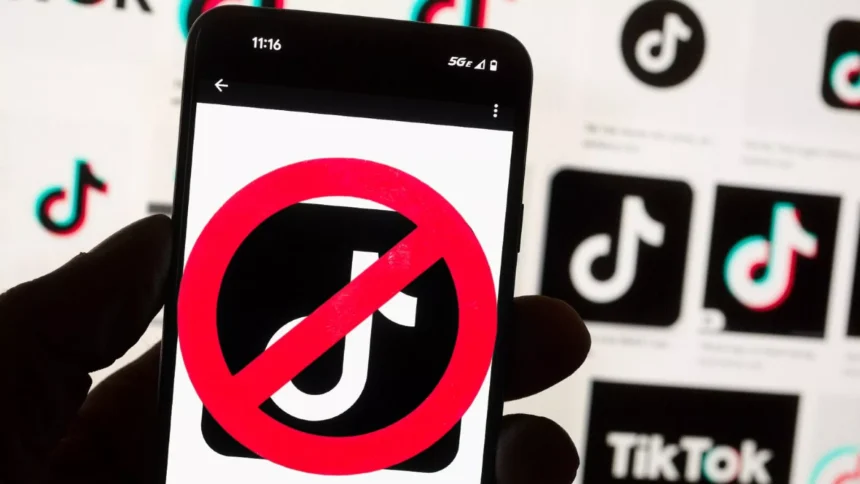As TikTok faces mounting scrutiny worldwide, the popular social media platform is finding itself in an increasingly precarious position. What began as a niche app for quirky dance videos has grown into a global giant—and with that growth has come controversy. The platform, owned by Chinese tech company ByteDance, has been accused of posing national security risks, raising privacy concerns, and even exacerbating social issues such as bullying and misinformation.
Several nations have taken action against TikTok, ranging from banning the app on government devices to outright prohibiting its use entirely. While the United States looks poised to implement the first full-scale ban, many other countries have enacted partial restrictions or are grappling with similar concerns. Let’s examine why TikTok is under fire and which countries are pushing back against its presence.
Why Is TikTok Under Scrutiny?
TikTok disputes accusations that it collects more data than other social media platforms, claiming such concerns are unfounded. The company maintains that it operates independently of its Chinese parent, ByteDance, and denies sharing data with the Chinese government. However, critics and governments around the world argue that the app’s ties to China—and China’s strict data laws—make it a potential security risk.
Adding to the controversy is the platform’s algorithm, which some believe can manipulate content for political purposes or influence societal issues, creating a fertile ground for disinformation. Western companies such as Airbnb, Yahoo, and LinkedIn have exited China due to Beijing’s stringent privacy requirements, highlighting broader concerns about data governance in the region.
Countries That Have Taken Action Against TikTok
1. United States: A Landmark Ban on the Horizon
The U.S. is set to become the first country to impose a full ban on TikTok if ByteDance does not divest its ownership. On January 17, 2025, the Supreme Court upheld a law citing national security concerns. Both the FBI and the Federal Communications Commission (FCC) have warned that TikTok could provide data to the Chinese government and manipulate content.
Beyond national security, TikTok’s impact on teenagers’ mental health has drawn criticism. Researchers have reported billions of views on harmful content, such as videos promoting eating disorders. With over 170 million users in the U.S. alone, TikTok’s influence is undeniable, but its future in the country hangs in the balance.
2. Albania: Banning TikTok for Domestic Reasons
In late 2024, Albania announced a year-long ban on TikTok, citing concerns over rising violence and bullying among youth. Unlike other countries, this decision was unrelated to national security or Chinese influence. Prime Minister Edi Rama declared the platform would be “fully closed” by early 2025, sparking outrage among Albanian TikTok users.
3. Australia: Government Devices Off-Limits
On April 4, 2023, Australia banned TikTok from all federal government-owned devices due to data privacy concerns. Officials warned that the app could be exploited by foreign governments, with Attorney-General Mark Dreyfus emphasizing that the ban was based on advice from intelligence agencies.
4. The UK: A Precautionary Approach
The UK followed suit in March 2023, banning TikTok from government devices based on findings by the National Cyber Security Centre. Although the UK had previously banned Huawei technology, critics argued it was slow to act on TikTok compared to its allies.
TikTok Under Fire in Europe
Several European countries and institutions have enacted bans or restrictions:
- Estonia: Banned TikTok on state-issued smartphones for public officials in early 2023.
- France: Prohibited recreational apps, including TikTok, on government devices in March 2023.
- EU Institutions: The European Parliament, Commission, and Council banned TikTok on staff devices, citing cybersecurity risks.
Asia’s Pushback on TikTok
1. India: A Pioneering Ban
India led the charge against TikTok in 2020, banning the app permanently in 2021 after a border clash with China. Privacy and security concerns drove this decision, along with nationalistic sentiment.
2. Taiwan: A Sector-Specific Ban
In December 2022, Taiwan banned TikTok from government devices, citing risks outlined by the FBI. The ban included other Chinese-made software and extended to desktops, tablets, and smartphones.
Other Countries Taking a Stand
Canada
In November 2024, Canada ordered TikTok to cease operations, citing foreign interference concerns. Earlier that year, the government had already banned the app on federal devices, warning citizens about the potential misuse of their data.
New Zealand
New Zealand’s ban, implemented in March 2023, applied only to parliamentary lawmakers’ devices. While limited in scope, the ban reflected the growing caution surrounding the platform.
Norway and Denmark
Both Norway and Denmark banned TikTok on government devices in early 2023, with intelligence services citing risks of espionage and disinformation.
Pakistan and Afghanistan
Pakistan has intermittently banned TikTok since 2020, citing immoral content. Afghanistan’s Taliban leadership banned it entirely in 2022 to protect youth from “misleading” influences.
What’s Next for TikTok?
The global backlash against TikTok highlights a broader reckoning over data privacy, national security, and the role of social media in society. While ByteDance insists it has no ties to the Chinese government, its assurances have done little to assuage fears.
As countries continue to reassess their relationships with TikTok, the platform’s future remains uncertain. The decisions made in the coming years will not only shape the fate of TikTok but also set a precedent for how governments regulate social media in the digital age.










